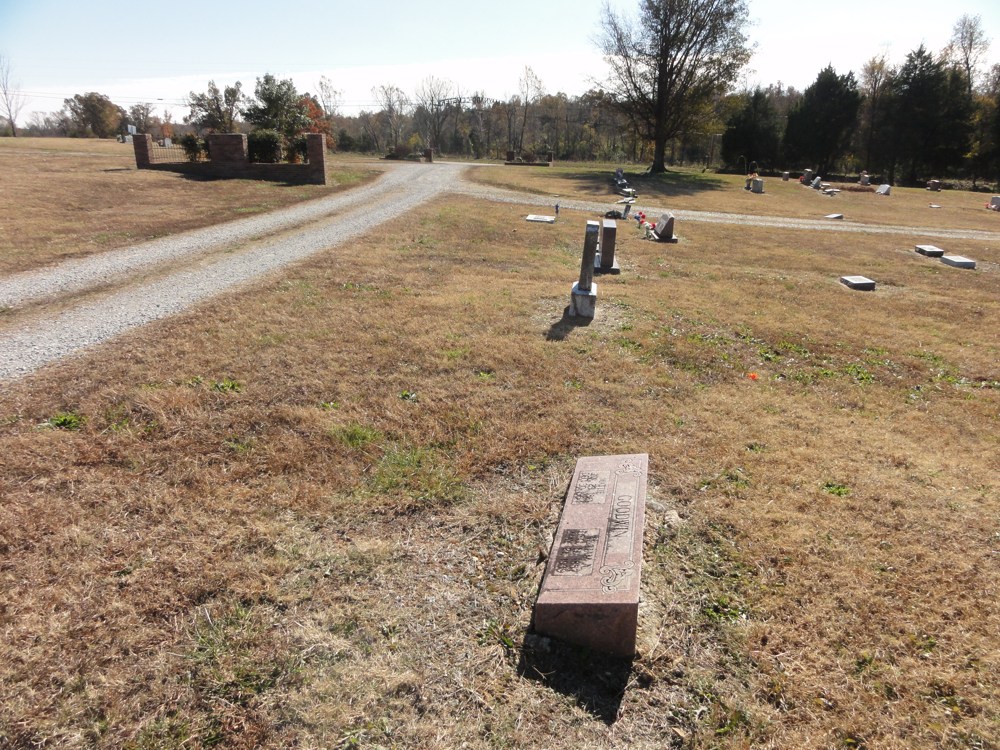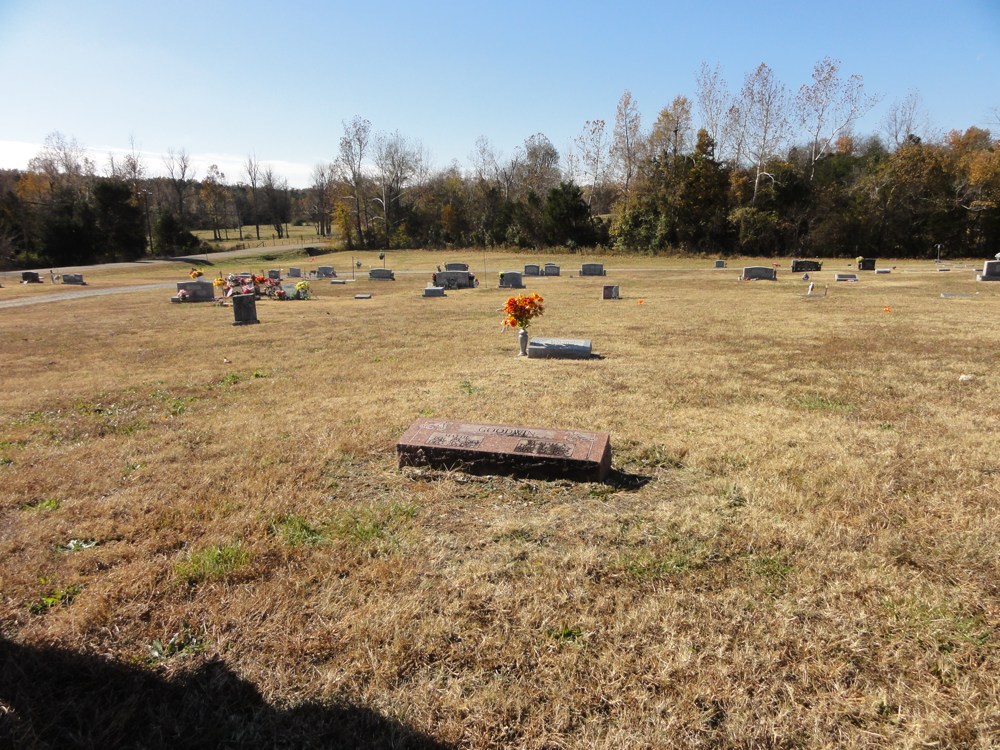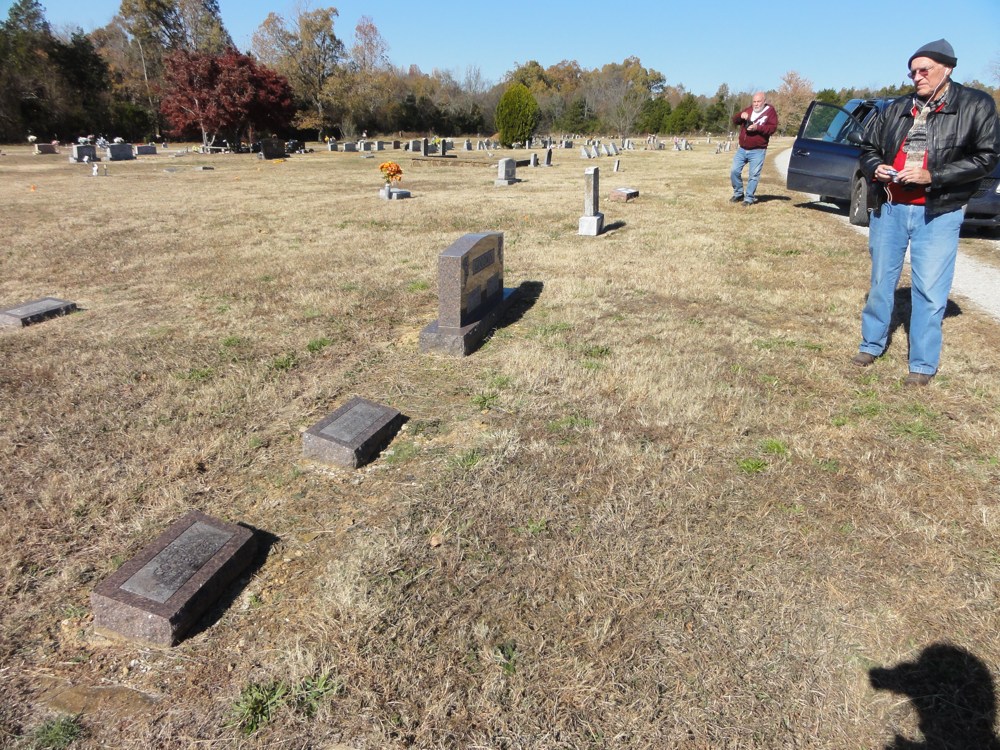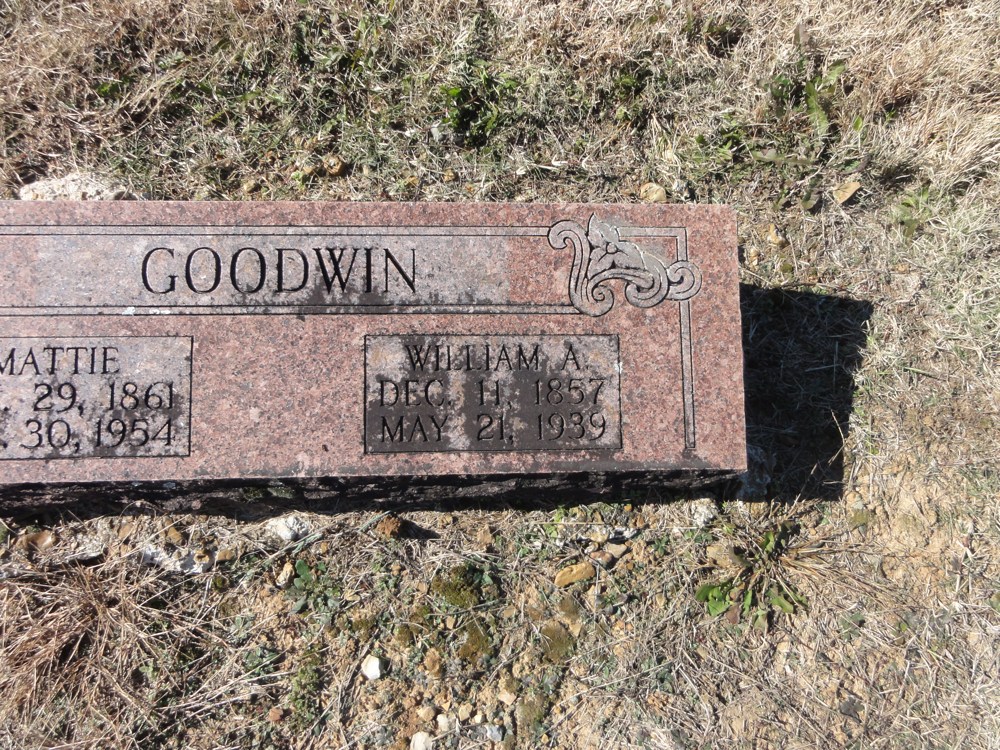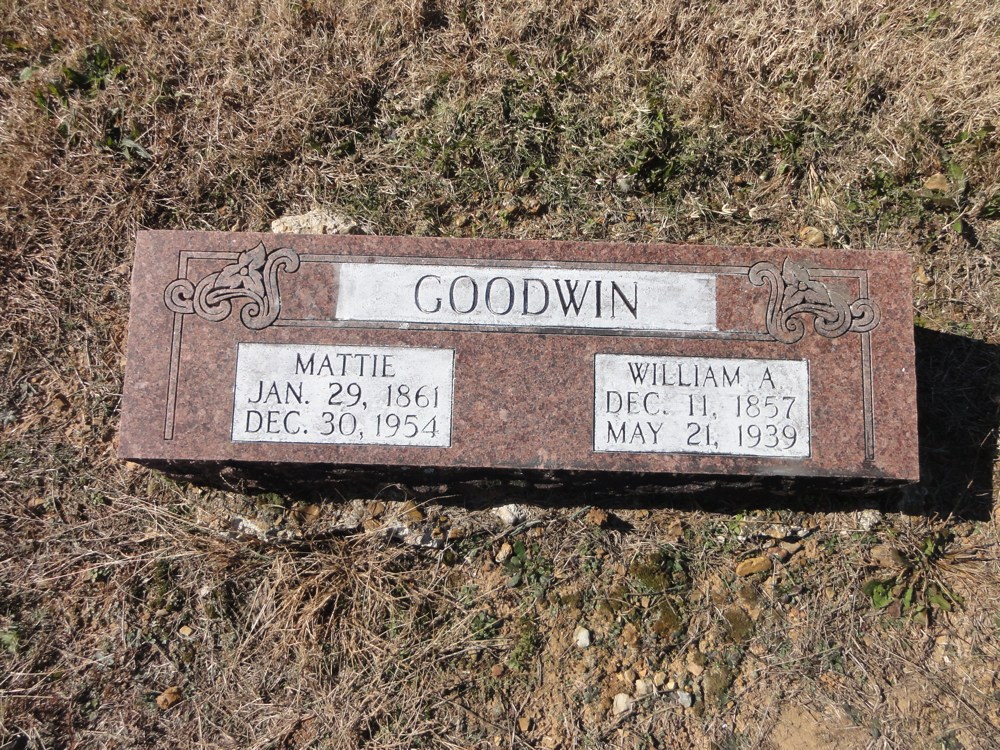William Alexander Goodwin
1857-1939
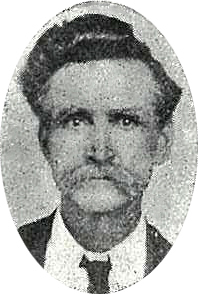
![]()
W.A. Goodwin
1857
The following was published in the Christian Worker issued the week of August 10, 1939, and came from the pen of one of our Arkansas Angels who is also much missed and sadly mourned, Bro. T . H. Sherrill, who at the time resided at Searcy, Arkansas.
"Bro. W. A. Goodwin has finished with the toil, strife and disappointments of this life. None of our pioneer preachers have been more loyal to the New Testament plea for pure Christianity. Perhaps no man among us had better Bible knowledge than he did. On the essentials of salvation he was as clear as a bell. When Brother Goodwin preached he simply told what the Bible teaches. It was easy to understand that he believed the word of God with all his mind, heart and soul. He preached out of his heart that all must have the faith in Christ that leads to complete obedience and an unfaltering trust in God's promises. It is said that he might have claimed a patent on some sermons among which was his sermon which he called 'Salvation by Grace.' Many have been enabled to see the glorious lignt of the gospel through his preaching this great sermon. When Brother Goodwin discussed any subject it was well done.
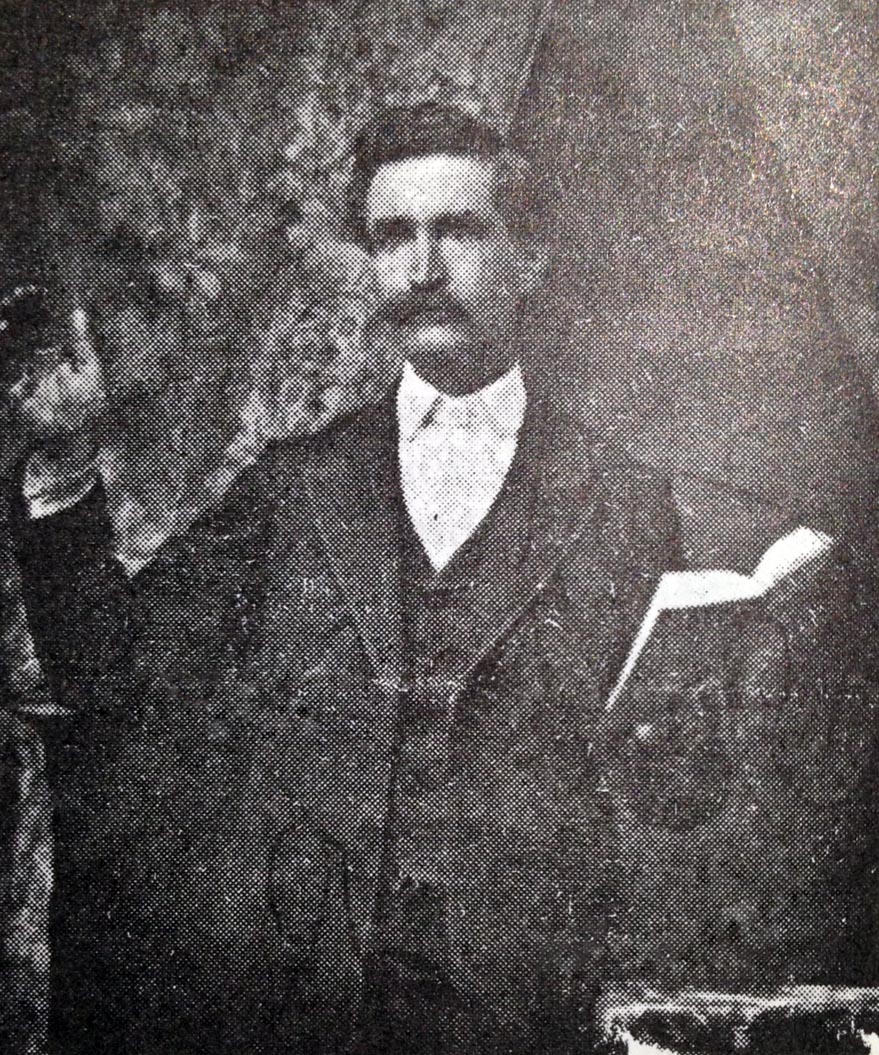 Brother Goodwin was a man endowed with common sense and a good wit. During his younger days he met Ben M. Bogard, Baptist debater, in a victorious way. In fact, no man could keep W. A. Goodwin from making the truth shine so that all honest listeners could understand. It was told that while attending a debate between the Church of Christ and the Baptist he was asked to preach a sermon. The rule governing such preaching seems to have been that no subject was to be discussed about which Christians and Baptists disagreed. When he arose to speak he remarked that he was at a loss to know what to preach in as much as there was scarcely a chance for agreement on essential matters. Then with a flash of his excellent wit he turned to the Baptist preachers and asked, 'Do you Baptist preachers believe Paul's statement, "By grace are ye saved?"' They replied, 'We surely do.' Brother Goodwin said, 'Fine! So do I. I will now use that as a subject.' The truth ran forth like a mighty river and spread out like a great ocean. The writer has helped in six meetings in Brother Goodwin's home congregation, Maynard, Arkansas. No man with whom I have been associated in a meeting has proved more able than he to judge the ground covered in protracted work, neither has anyone been better In predicting the outcome of a meeting.
Brother Goodwin was a man endowed with common sense and a good wit. During his younger days he met Ben M. Bogard, Baptist debater, in a victorious way. In fact, no man could keep W. A. Goodwin from making the truth shine so that all honest listeners could understand. It was told that while attending a debate between the Church of Christ and the Baptist he was asked to preach a sermon. The rule governing such preaching seems to have been that no subject was to be discussed about which Christians and Baptists disagreed. When he arose to speak he remarked that he was at a loss to know what to preach in as much as there was scarcely a chance for agreement on essential matters. Then with a flash of his excellent wit he turned to the Baptist preachers and asked, 'Do you Baptist preachers believe Paul's statement, "By grace are ye saved?"' They replied, 'We surely do.' Brother Goodwin said, 'Fine! So do I. I will now use that as a subject.' The truth ran forth like a mighty river and spread out like a great ocean. The writer has helped in six meetings in Brother Goodwin's home congregation, Maynard, Arkansas. No man with whom I have been associated in a meeting has proved more able than he to judge the ground covered in protracted work, neither has anyone been better In predicting the outcome of a meeting.
Brother Goodwin loved souls so much that he worked at the job of saving them. One time he and Bro. J. Will Henley went to Pocahontas, Arkansas, to hold a mission meeting. One meeting afforded an audience of three women who were more than fifty years of age. Brother Henley told Brother Goodwin that he could not preach to so few. Brother Henley sang, read a lesson and prayed and Brother Goodwin delivered the sermon. The entire audience of three women made the good confession and demanded baptism. This marked the beginning of the church of Christ in Pocahontas.
Brother Goodwin was decidely a man of peace among his brethren. He never pressed any views peculiar to himself. He never expressed himself without knowing what he was doing. One reason he could do so was because he loved God and his brethren, and on this foundation he could with success put himself in the back of the scene and give the Lord due praise. He showed no disposition to be a dictator. It was enough for him to be a humble servant of the Lord. I believe that he would have been the last man in Arkansas to have endorsed error, yet he never presented himself as a champion or a hero in such problems as may come out of bold agitations relative to erroneous matters. He rather placed himself back of the Cross of Christ and then extended the helping hand of love, peace, and hope.
Among other things worthy of mention was his industrious life, he, like the great apostle Paul, labored with his own hands as he preached the unsearchable riches of Christ. The most conservative would gladly extend credit to him, because he was strictly honest, and his word was as good as gold. Each year for the past several seem to endear things eternal to his heart more and more. His prayer was a heart prayer. It was electrifying to hear him conclude the petition to God by use of the words, 'And we will give thee all the praise now, and the world without end. These blessings we ask and thanks we offer in the name of Christ. Amen.' But now he rests from his labor of love and his works follow him. This is a wonderful truth! Not only this, but in due time he will be raised from the grave and clothed with the immortality that only Christ can bestow. Then will our dear Brother and precious loved one walk the streets of pure gold where he will never have another care, but rather where every desire of his mind, heart, and soul will be completely supplied by our loving heavenly Father. What could be better than for all of his loved ones, all of his friends and neighbors, and all of the brethren and sisters in Christ to live as to enter through the gate into the beautiful city of God and unite with him in singing the new song: Won't it be a sublime affair when W. A. Goodwin, W. A. Schultz, David Lipscomb, J. W. McGravey, Alexander Campbell, Noah, Abraham, Moses, Stephen, Paul, and the others of that grand and inumerable host of the blessed redeemed shall meet on eternity's blissful shore of pure happiness? The influence of such men remain as a rich benediction to both saint and sinner.
They will hear the Master say 'Well done, thou good and faithful servant: thou hast been faithful over a few things, I will make thee ruler over many things: enter thou into the joy of the Lord.'" ---- T. H. Sherrill, Searcy, Arkansas
Brother William Alexander Goodwin was born In Lawrence County Arkansas, December 11, 1857, the son of Louis Alexander and Lou Nettie Goodwin.
He was married to Miss Mattie Biggers, the daughter of John F. and Sarah Biggers of Sharp County on July 28, 1878. John F. Biggers was a much renowned pioneer school teacher in Sharp County. The Goodwins enjoyed 61 years of marriage until separated by Bro. Goodwin's death. His wife, three sons, three daughters, 27 grandchildren and 3 great grandchildren survived him.
Bro. Goodwin first began preaching the gospel of Christ in the vicinity of Smithville, Arkansas when he was about 27 years old. This was about 1884. His career as a gospel minister was to span more than a half a century to fifty-four years. About two weeks before his death he dictated an article to Bro. Rue Porter which was published in the Christian Worker.
A very able debater, he contended for the faith against any who opposed it. The last year of his life he engaged John Causey, Missionary Baptist, in a written discussion on The Design of Baptism. Being past 80 years of age, he preferred a written discussion. The debate enjoyed rather large circulation. Bro. Sherrill advertised the debate in the September 7, 1939 issue of the Christian Worker with a few remarks about Bro. Goodwin. Among things said were these: "Bro. W.A. Goodwin has for years had the reputation of being one of our very best Bible scholars. His understanding of the Bible, his common sense and good wit made him a power in handling the truth of our Lord. He very successfully met Ben M. Bogard in debate several years ago. You will be delighted with the simple logical and pointed manner in which Brother Goodwin handled the subject." The book was called the Goodwin-Causey debate and quite a few are still owned by the brethren in Northeast Arkansas.
All of the old time gospel preachers had some occupation with which they supplied their material needs. A gospel preacher's pay was far too meager to support a family. This grand champion had as his 'tent-making' the vocation of blacksmith. He met the most famous Baptist debater, Ben M. Bogard, three times. Evidently, the first time was in Randolph County where the story of Mr. Bogard's a lighting in town for the debate has been told and retold many times. It is said that he immediately asked where was the man whom he was to debate. Right over there!, he was told. "Where?" Mr. Bogard asked, "I don't see anyone." "Right over there shoeing that mule," pointed his respondent. At once, Mr. Bogard began to rebuke his people saying, "I'm a debater, and you mean you people have called me up here to meet a blacksmith." They then informed him not to worry that he'd find all he was looking for in the blacksmith. Mr. Bogard said after the debate that he had met Blue and Warlick but Goodwin was the hardest man to meet that he had ever engaged. He said that he knew more Bible.
Apparently Bro. Goodwin gave a very successful account of himself with Mr. Bogard as he was called twice to Little Rock, where Mr. Bogard's school was located, to meet him. Sister R. L. Spencer of Maynard, Arkansas, daughter of Bro. W. A. Goodwin, told me that on the occasion of one of the debates that her father and Mr. Bogard stayed in the same hotel. Though opponents, they were friends and once in private conversation her father said to him, "Ben, you know you are wrong." "Well, Billy," Mr. Bogard replied "I raised my family." He declined to comment more. One of the debates was taken by a stenographer and published. It was captioned "Bogard in a Muddle."
Among others whom he debated was a Mr. Martin, Methodist, whom he met at Maynard.
To his intiminate friends and associates he was known as 'Billy' and in his later years was affectionately called 'Uncle Billy.'
The Goodwins lived in Maynard, Arkansas. Once for a very short time they lived at King's Mill in Sharp County and once at Mammoth Spring, Arkansas. They lived for sixty years in Randolph County.
Bro. Goodwin died at his home in Maynard on a Lord's day in mid 1939. Bro. John W. Harper of Datto, Arkansas, (another old-time gospel preacher who lived to be above ninety and departed this life just last year (1966) in an old folks home at Corning, Ark) conducted the funeral service and Bro. Goodwin's body was buried in the Maynard cemetery. He has been gone for more than a quarter of a century but the churches he helped to establish and nourish have prospered greatly and his works 'do follow him.' Eternity alone can accumulate all the good of his labors.
-Boyd E. Morgan, Arkansas Christians, Second Printing, Paragould: College Bookstore and Press, 1967, pages 10-15.
![]()
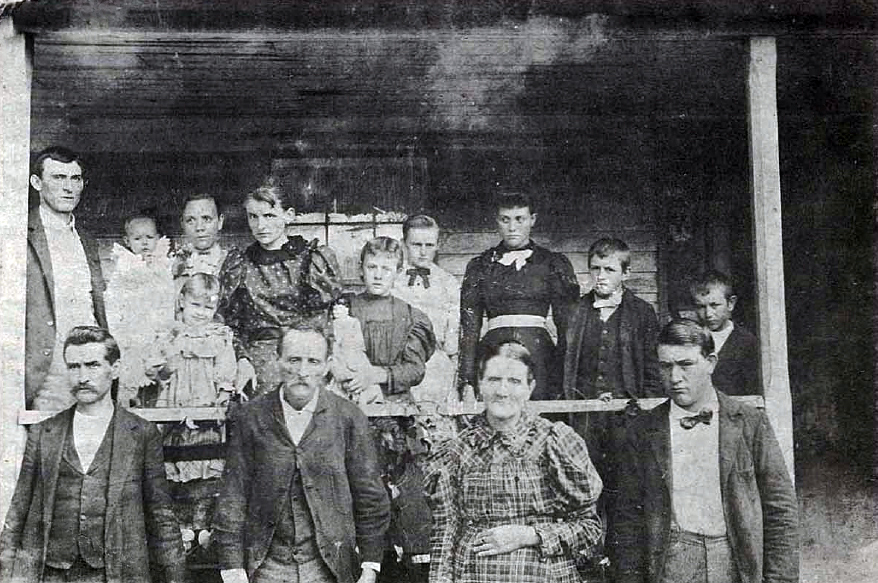
This picture was made in the 1890's at Center, Ark.
Front row L. to R. Bro. W.A. Goodwin, famed preacher; George Washington Bland who came to Sharp county from the
Ohio River Valley; Mrs. Bland and their son, Texas. The Bland's were baptized into Christ by old Bro. E. N. George and
became charter members of the church at Center. Brother and Sister Will Smith stand in the left background. The baby
in Sister Smith's arms is the wife of Dexter Lloyd, one of the elders of the Bettistown Church.
![]()
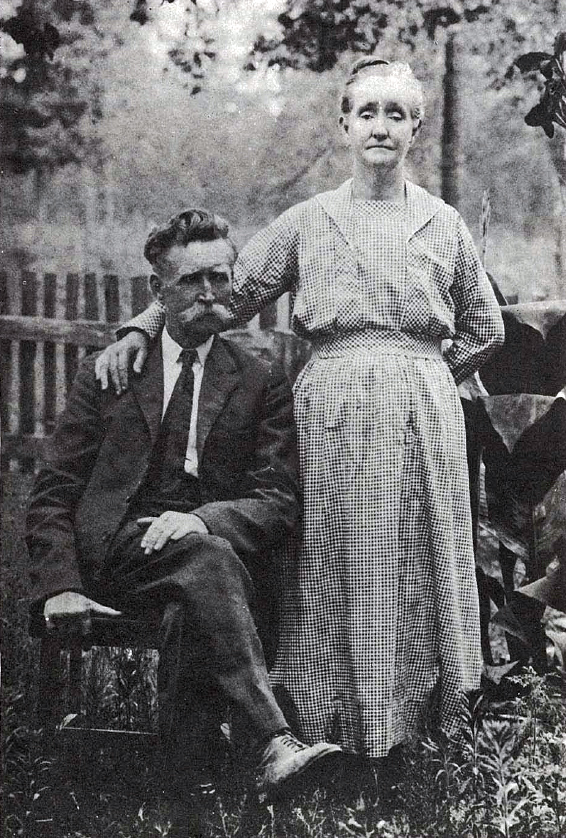
Brother and Sister W. A. Goodwin
Maynard, Arkansas
![]()
W.A. Goodwin
W. A. Goodwin's1 (1Boyd Morgan included an extensive sketch on W. A. Goodwin in Arkansas Angels, pp. 10-13.) name appears among many others in a list of preachers of the gospel in Randolph County during the late nineteenth and early twentieth centuries in Dalton Is History of Randolph County.2 (2History, p. 122.) Goodwin was born December 11, 1857, in Lawrence County, Arkansas, the son of Louis Alexander and Lou Nettie Goodwin. He married Mattie Biggers July 28, 1878, and their marriage was blessed with six children.
He began preaching at Smithville in Lawrence County about 1884. A few years later Goodwin joined J. Will Henley in a mission meeting at Pocahontas and began what is today the Pyburn Street Church of Christ.3 (3This writer has in his possession an undated newspaper clipping from the Pocahontas Star Herald written by one who remembers him" in which it is claimed that Goodwin and Henley were the impetus behind the beginning of the Pyburn St. Church of Christ.) Goodwin lived most of his adult life in the Maynard area and helped serve or begin Churches of Christ in Randolph County.4 (4 Goodwin also preached on occasion for the Surrounded Hill Church of Christ in Jackson County in the early days of the twentieth century. Many Randolph County preachers often spoke at Surrounded Hill.)
Goodwin was a Maynard resident when he wrote "A Letter to the Brethren of Randolph County" which appeared in the January 19, 1909, issue of The Christian Pilot, a paper published in Batesville by E. M. Borden.1 (1W. A. Goodwin ... A Letter to the Brethren of Randolph County," The Christian Pilot (Jan. 1909): 12.) Because of the rarity of Borden's paper and the unusual nature of Goodwin's article, the brief treatise is completely reproduced:
Dear Brethren in Christ:- In Randolph County Arkansas there are many places where the gospel is not preached. We have about eighteen established congregations in the county. These congregations usually support a brother to hold a ten days, or two weeks, meeting once a year. Some congregations have preaching once a month, while the people in other communities are left to be deluded by false teachers. The brethren are making a sad mistake by not supporting a man to preach the gospel in these destitute places. I have called attention to this fact in some places, and the brethren say this work ought to be done. Some have asked me if I would take the work for this year. I want to say to all the brethren in Randolph County that it is my heart's desire to devote my entire time during 1909 to preaching in destitute places in this county. Bro. J. L. Talbott wrote to fourteen congregations asking what they were willing to do toward supporting the work. He has heard from six congregations which promise me a small contribution each month during the year to help me do this work. Brethren, I know of several places in Randolph County where there has never been a gospel sermon preached in ten years. Now, brethren, I am going to devote my time this year in these places, and I ask all the brethren to help me. Read this letter to the brethren and encourage them to help in this good work. I want to hear from every church in the county. Let me know what you are willing to do. I will keep an account of every sermon I preach, and what I receive, and report through the Pilot. - W.A. Goodwin.
Goodwin established a reputation for being a faithful gospel preacher and outstanding debater. He passed from this life to the next on Sunday, May 21, 1939. The old Christian soldier's body was laid to rest in the Maynard Cemetery to await a glorious resurrection. 2 ("Bro. William A. Goodwin," Pocahontas Star Herald. 25 May 1939. p. 4.)
-Dr. Michael L. Wilson, Arkansas Christians:A History of the Restoration Movement in Randolph County, Arkansas 1800-1995, c.1997, Delight: Gospel Light Publishing Co., page 212,213.
![]()
Directions To The Grave of W.A. Goodwin
The small town of Maynard, Arkansas lies in the northern part of the state, a few miles north of Pocohontas. Head north out of Pocohontas on Hwy. 115. Go into Maynard and turn right on Hwy. 328. Heading out of town you will come to the cemetery on the left. Enter the cemetery and bear to the left. Stop the car immediately, and the Goodwin family plot will be on the left next to the drive.
GPS Location
36°25'15.3"N 90°53'24.7"W
or D.d. 36.420912, -90.890182
![]()

GOODWIN
Joseph H. - February 2, 1884 - November 6, 1957
Erma Carter - October 6, 1893 - April 29, 1987
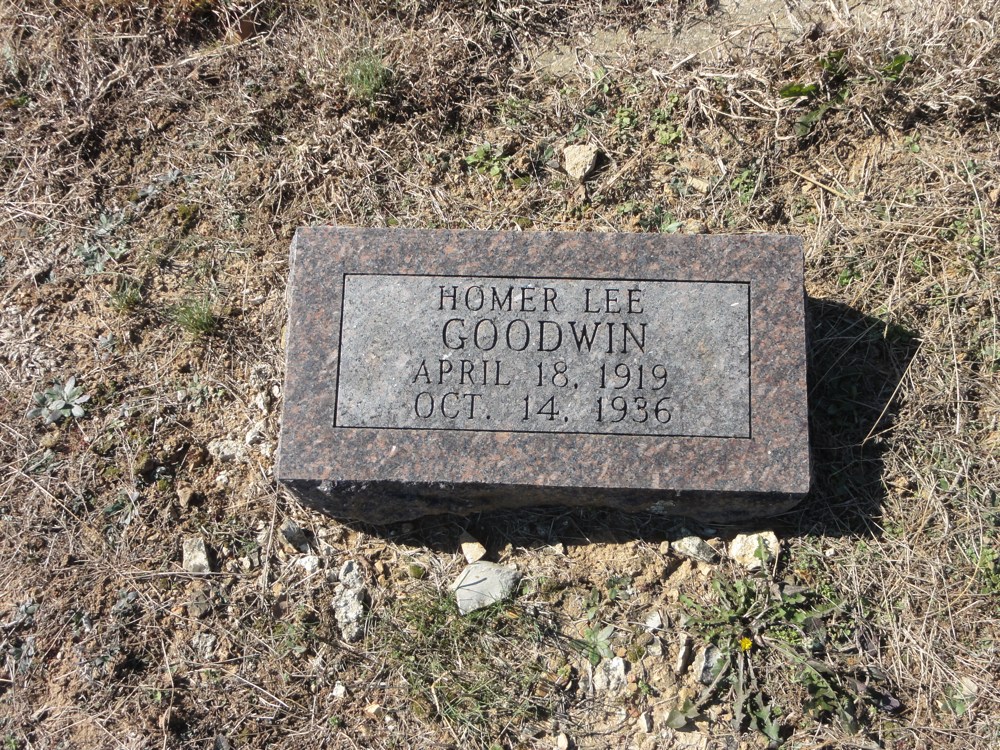
Homer Lee Goodwin
April 18, 1919
October 14, 1936
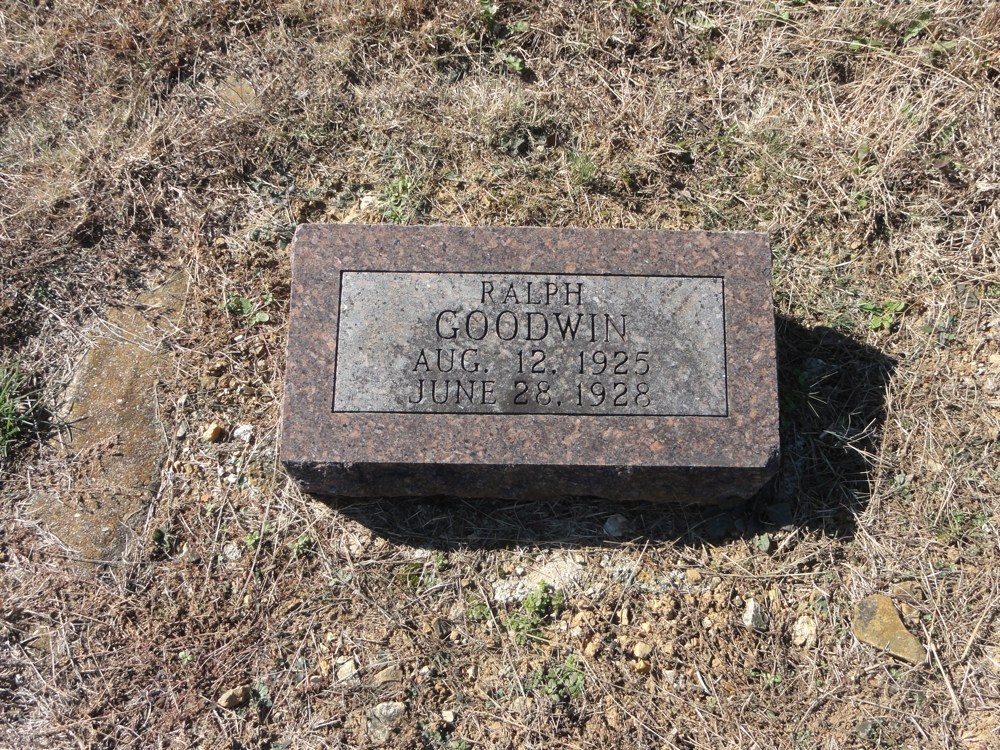
Ralph Goodwin
August 12, 1925
June 28, 1928
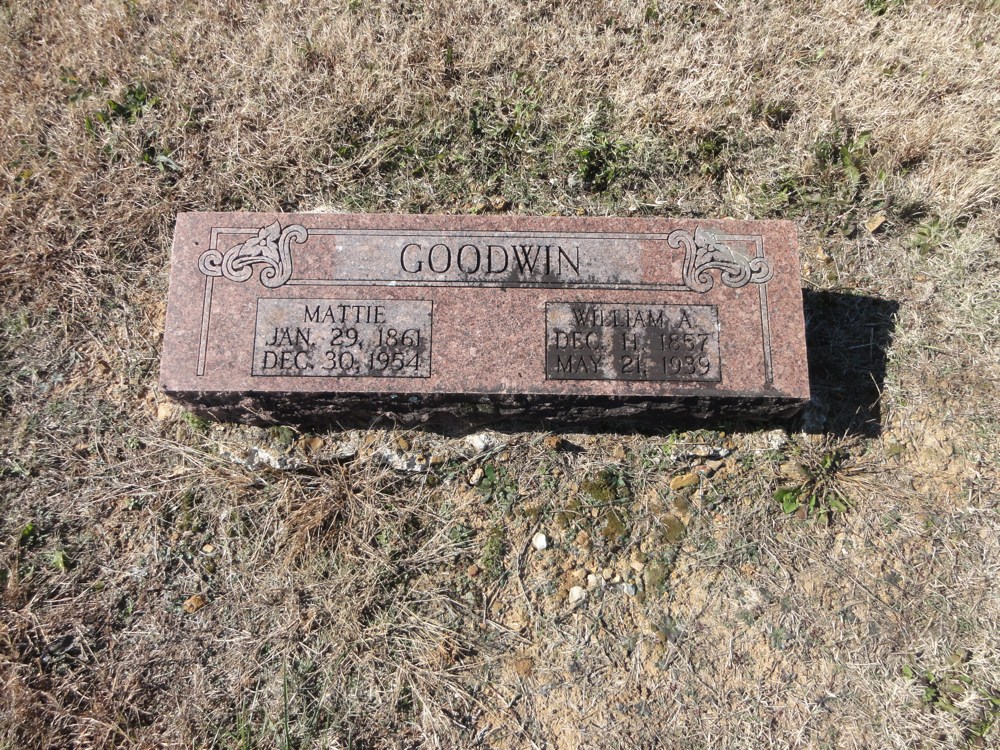
GOODWIN
Mattie - January 29, 1861 - December 30, 1954
William A. December 11, 1857 - May 21, 1939
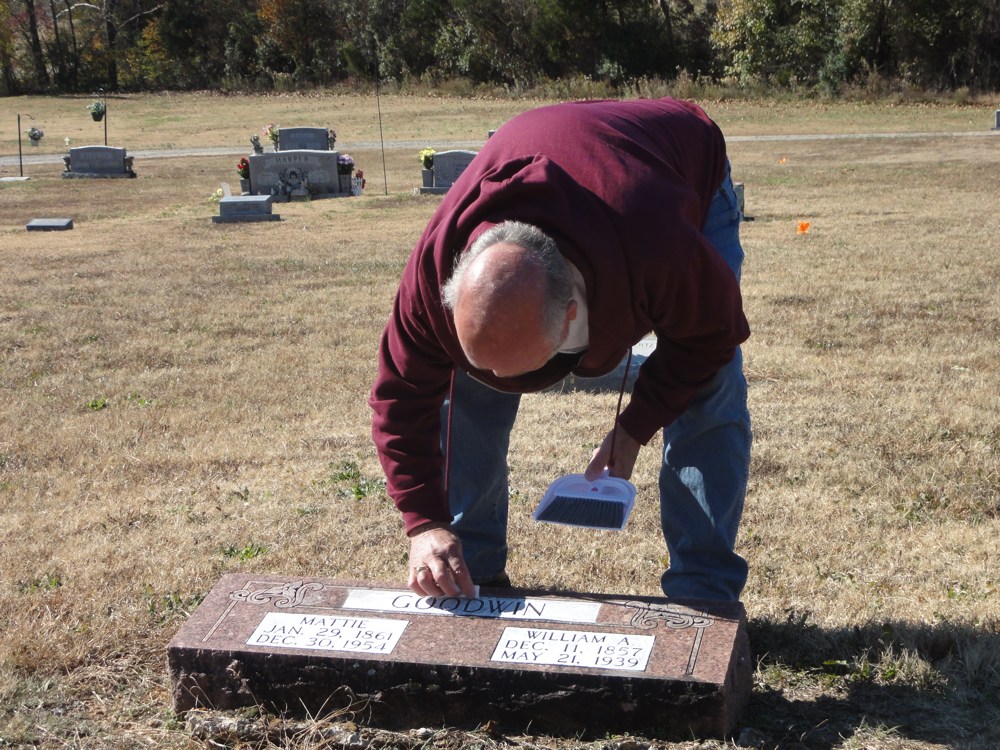
C. Wayne Kilpatrick chalking the older monument to get a better photo.
![]()
Photos Taken 11.14.2014
Webpage Produced 02.17.2015
Courtesy of Scott Harp
www.TheRestorationMovement.com
*Special thanks to Tom L. Childers and Charlie Wayne Kilpatrick for assisting in the burial location. They, along with your web editor, took a trip into northern Arkansas to find the graves of gospel preachers of yesteryear in November, 2014. We traveled together three days and located the final resting places of nearly forty preachers and their families. It was a great trip. Many of the personalities we researched were chronicled in Boyd E. Morgan's book, Arkansas Angels, or later in Dr. Michael L. Wilson's book, Arkansas Christians: A History of the Restoration Movement in Randolph County, 1800-1995.
![]()

